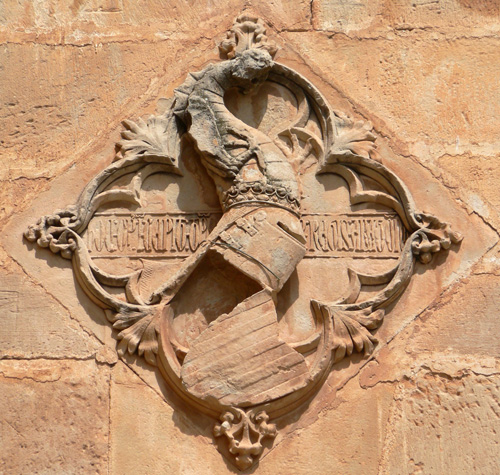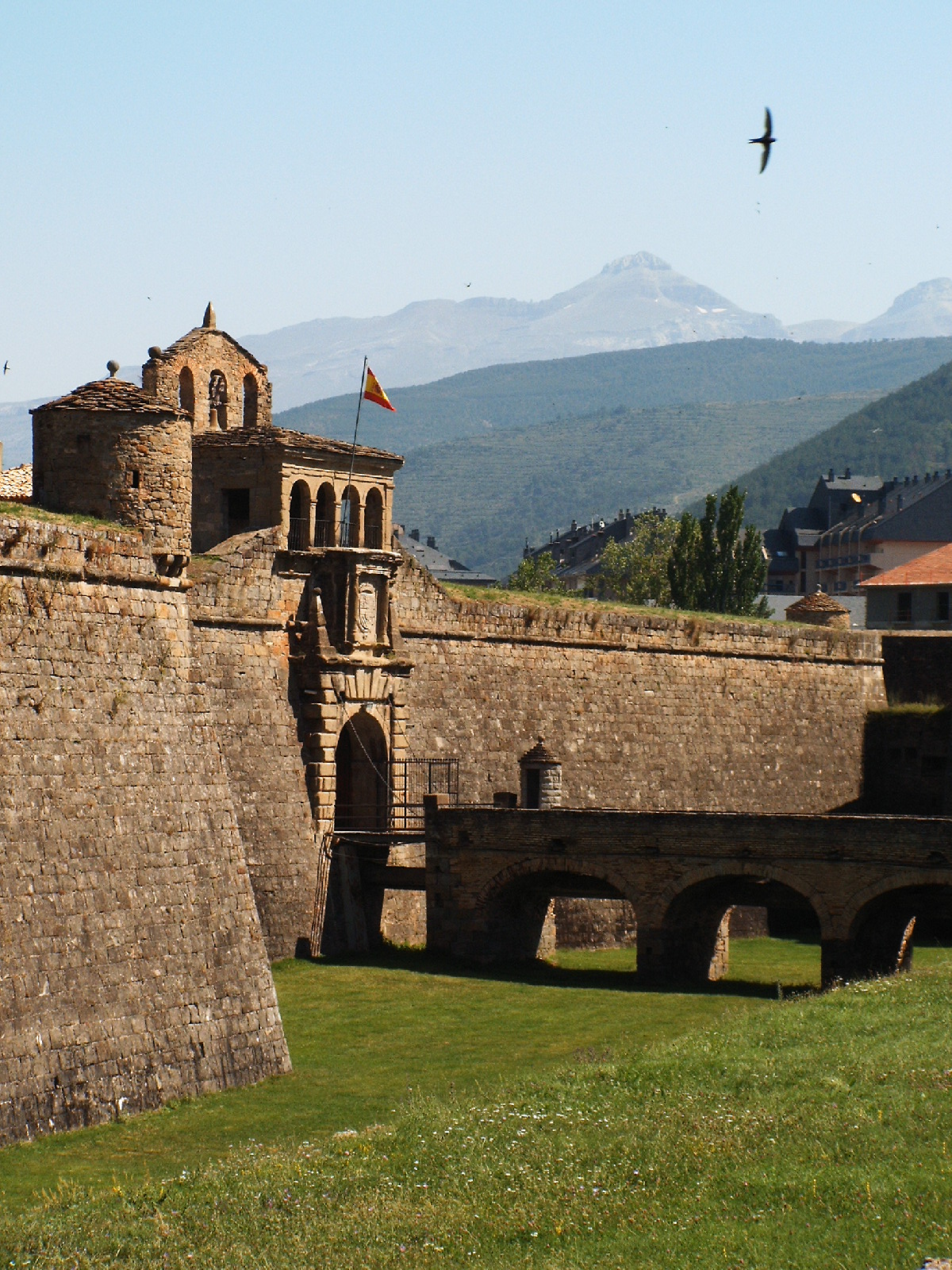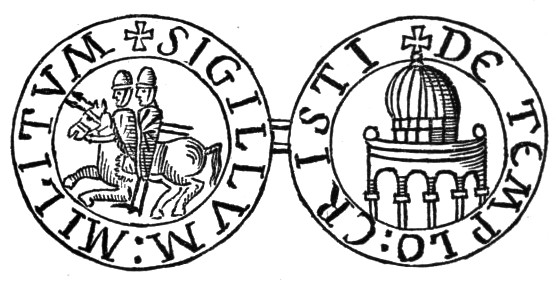|
Papal Inquisition In Spain
The Spanish Inquisition typically refers to the state-church institution established by King Ferdinand II of Aragon and Queen Isabella I of Castile in 1480. However, inquisitorial tribunals operated on the Iberian Peninsula long before this date. Like most Catholic European countries, Spanish kingdoms were subject to the medieval papal Inquisition, with several bishops also conducting inquisitorial activities. The Inquisition's activities were largely confined to the Crown of Aragon, while in Castile and Portugal, it was virtually unknown. Heretics in Spain The two major medieval heretic movements, the Catharism, Cathars and Waldensians, were present in Spain from the late 12th century. Waldensians were explicitly named in anti-heretical decrees by Aragonese kings Alfonso II of Aragon, Alfonso II in 1194 and Peter II of Aragon, Peter II in 1198. One Waldensian leader, Durand of Huesca, from Aragon, reconciled with the Catholic Church in 1208, founding the "Poor Catholics" communi ... [...More Info...] [...Related Items...] OR: [Wikipedia] [Google] [Baidu] |
Ferdinand II Of Aragon
Ferdinand II, also known as Ferdinand I, Ferdinand III, and Ferdinand V (10 March 1452 – 23 January 1516), called Ferdinand the Catholic, was King of Aragon from 1479 until his death in 1516. As the husband and co-ruler of Queen Isabella I of Castile, he was also King of Castile from 1475 to 1504 (as Ferdinand V). He reigned jointly with Isabella over a Dynastic union, dynastically unified Spain; together they are known as the Catholic Monarchs. Ferdinand is considered the ''de facto'' first king of Spain, and was described as such during his reign, even though, legally, Crown of Castile, Castile and Crown of Aragon, Aragon remained two separate kingdoms until they were formally united by the Nueva Planta decrees issued between 1707 and 1716. The Crown of Aragon that Ferdinand inherited in 1479 included the kingdoms of Kingdom of Aragon, Aragon, Kingdom of Valencia, Valencia, Kingdom of Majorca, Majorca, Kingdom of Sardinia, Sardinia, and Kingdom of Sicily, Sicily, as well as ... [...More Info...] [...Related Items...] OR: [Wikipedia] [Google] [Baidu] |
Dominican Order
The Order of Preachers (, abbreviated OP), commonly known as the Dominican Order, is a Catholic Church, Catholic mendicant order of pontifical right that was founded in France by a Castilians, Castilian priest named Saint Dominic, Dominic de Guzmán. It was approved by Pope Honorius III via the papal bull on 22 December 1216. Members of the order, who are referred to as Dominicans, generally display the letters ''OP'' after their names, standing for , meaning 'of the Order of Preachers'. Membership in the order includes friars, nuns, Religious sister (Catholic), active sisters, and Laity, lay or secular Dominicans (formerly known as Third Order of Saint Dominic, tertiaries). More recently, there have been a growing number of associates of the religious sisters who are unrelated to the tertiaries. Founded to preach the The gospel, gospel and to oppose heresy, the teaching activity of the order and its scholastic organisation placed it at the forefront of the intellectual life of ... [...More Info...] [...Related Items...] OR: [Wikipedia] [Google] [Baidu] |
Peter IV Of Aragon
Peter IV (Catalan: ''Pere IV d'Aragó;'' Aragonese; ''Pero IV d'Aragón;'' 5 September 1319 – 6 January 1387), called the Ceremonious (Catalan: ''El Cerimoniós''; Aragonese: ''el Ceremonioso''), was from 1336 until his death the king of Aragon, king of Sardinia and Corsica, Sardinia-Corsica, and King of Valencia, Valencia, and count of Barcelona. In 1344, he deposed James III of Majorca and made himself King of Majorca. His reign was occupied with attempts to strengthen the crown against the Union of Aragon and other such devices of the nobility, with their near constant revolts, and with foreign wars, in Sardinia, Sicily, the Mezzogiorno, Latin Empire, Greece, and the Balearics. His wars in Greece made him Duke of Athens and Duchy of Neopatria, Neopatria in 1381. Succession conflicts Peter was born at Balaguer, the eldest son and heir of Alfonso IV of Aragon, Alfons IV, then Count of Urgell, and his first wife, Teresa d'Entença. Peter was designated to inherit all of ... [...More Info...] [...Related Items...] OR: [Wikipedia] [Google] [Baidu] |
Directorium Inquisitorum
The ''Directorium Inquisitorum'' is Nicholas Eymerich's most prominent and enduring work, written in Latin and consisting of approximately 800 pages, which he had composed as early as 1376. Eymerich had written an earlier treatise on sorcery, perhaps as early as 1359, which he extensively reworked into the ''Directorium Inqusitorum''. In compiling the book, Eymerich used many of the magic texts he had previously confiscated from accused sorcerers. It can also be considered as an assessment of a century and a half of official Inquisition in the " albigensian" country. Subject matter The Dominican friar Nicholas Eymerich was appointed Inquisitor General of Aragon in 1357. As he directed much of his efforts to the apparent errors of members of the clergy, he often found his investigations blocked by the court, curia, or papacy. King Peter IV of Aragon had him removed from office at the general chapter held at Perpignan in 1360. [...More Info...] [...Related Items...] OR: [Wikipedia] [Google] [Baidu] |
Nicholas Eymerich
Nicholas Eymerich () (Girona, ''c.'' 1316 – Girona, 4 January 1399) was a Roman Catholic theologian in Medieval Catalonia and Inquisitor General of the Inquisition in the Crown of Aragon in the later half of the 14th century. He is best known for authoring the '' Directorium Inquisitorum'', that mostly summarized previous texts and mores. Life Education and early tenure as Inquisitor General Nicholas Eymerich was born in Girona c. 1316.Although the most commonly given birth year of Eymerich is 1320, he actually couldn't have been born later than in 1317. According to the canon law, he must have been at least 40 when he became inquisitor, and his nomination to that post took place in 1357; besides, it has been reported that he was over 80 in 1397. See Claudia Heimann, ''Nicolaus Eymerich (vor 1320-1399): praedicator veridicus, inquisitor intrepidus, doctor egregius'', Aschendorff, 2001, p. 11. , He entered the local monastery of the Dominican Order on 4 August 1334. Here, duri ... [...More Info...] [...Related Items...] OR: [Wikipedia] [Google] [Baidu] |
Pope Innocent VI
Pope Innocent VI (; 1282 – 12 September 1362), born Étienne Aubert, was head of the Catholic Church and ruler of the Papal States from 18 December 1352 to his death, in September 1362. He was the fifth Avignon pope and the only one with the pontifical name of "Innocent". Étienne Aubert, born in the Diocese of Limoges, was a civil law professor and held various positions in the church before being appointed as Cardinal-Bishop of Ostia and Velletri by Pope Clement VI. He became Pope Innocent VI on 30 December 1352. As pope, he revoked an agreement asserting the college of cardinals' superiority over the pope and introduced important reforms in church administration. Through his legate, Cardinal Albornoz, he aimed to restore order in Rome. Innocent VI played a significant role in the 1360 Treaty of Brétigny between France and England. Though he declined an offer to unite the Greek Orthodox Church with the Roman See in exchange for support, his papacy was marked by financia ... [...More Info...] [...Related Items...] OR: [Wikipedia] [Google] [Baidu] |
Calatayud
Calatayud (; 2014 pop. 20,658) is a Municipalities of Spain, municipality in the Province of Zaragoza, within Aragón, Spain, lying on the river Jalón (river), Jalón, in the midst of the Sistema Ibérico mountain range. It is the second-largest town in the province after the capital, Zaragoza, and the largest town in Aragón other than the three provincial capitals. It is the seat of the Comarcas of Spain, comarca of Comunidad de Calatayud, Calatayud. Its population has been declining during the last decade due to migration. The town motto is ''Muy noble, leal, siempre augusta y fidelísima ciudad de Calatayud'' ("The very noble, loyal, always august and most faithful town of Calatayud"). The first democratic elections after Francoist Spain, Francisco Franco's regime were called for 15 June 1977. In Calatayud they were held one day earlier than all the rest of Spain, in order to prepare for a visit there by King Juan Carlos I. Highways and railways The town is located by the Ca ... [...More Info...] [...Related Items...] OR: [Wikipedia] [Google] [Baidu] |
Qahal
The ''qahal'' (), sometimes spelled ''kahal'', was a theocratic organizational structure in ancient Israelite society according to the Hebrew Bible, See column345-6 and an Ashkenazi Jewish system of a self-governing community or kehila from medieval Christian Europe (France, Germany, Italy). This was adopted in the Polish–Lithuanian Commonwealth (16th–18th centuries) and its successor states, with an elected council of laymen, the 'qahal', at the helm of each kehila. This institution was exported also further to the east as Jewish settlement advanced. In Poland it was abolished in 1822, and in most of the Russian Empire in 1844. Etymology and meaning The Hebrew word qahal, which is a close etymological relation of the name of ''Qoheleth'' (Ecclesiastes), comes from a root meaning "convoked roup; its Arabic cognate, ''qāla'', means ''to speak''. Where the Masoretic Text uses the term qahal, the Septuagint usually uses the Koine Greek term ''ekklesia'', , which means " ... [...More Info...] [...Related Items...] OR: [Wikipedia] [Google] [Baidu] |
Jaca
Jaca (; in Aragonese language, Aragonese: ''Chaca'' or ''Xaca'') is a city of northeastern Spain in the province of Huesca (province), Huesca, located near the Pyrenees and the border with France. Jaca is an ancient fort on the Aragón (river), Aragón River, situated at the crossing of two great early medieval routes, one from Toulouse to Santiago de Compostela and Pau, Pyrénées-Atlantiques, Pau to Zaragoza. Jaca was the city out of which the County of Aragon, County and Kingdom of Aragon developed. It was the first capital of the Kingdom of Aragon until 1096 and also the capital of Jacetania. Villages Besides Jaca town, there are a number of outlying villages in the municipality of Jaca, including the ski resort of Astún. History The origins of the city are obscure, but its name is apparently of Iacetani origin, as Strabo lists them as one of the most celebrated of the numerous small tribes inhabiting the Ebro basin. Strabo adds that their territory lay on the site of the w ... [...More Info...] [...Related Items...] OR: [Wikipedia] [Google] [Baidu] |
Knights Templar
The Poor Fellow-Soldiers of Christ and of the Temple of Solomon, mainly known as the Knights Templar, was a Military order (religious society), military order of the Catholic Church, Catholic faith, and one of the most important military orders in Western Christianity. They were founded in 1118 to defend pilgrims on their way to Jerusalem, with their headquarters located there on the Temple Mount, and existed for nearly two centuries during the Middle Ages. Officially endorsed by the Catholic Church by such decrees as the papal bull ''Omne datum optimum'' of Pope Innocent II, the Templars became a favoured charity throughout Christendom and grew rapidly in membership and power. The Templar knights, in their distinctive white mantle (monastic vesture), mantles with a red Christian cross, cross, were among the most skilled fighting units of the Crusades. They were prominent in Christian finance; non-combatant members of the order, who made up as much as 90% of their members, ma ... [...More Info...] [...Related Items...] OR: [Wikipedia] [Google] [Baidu] |
Pope Clement VI
Pope Clement VI (; 1291 – 6 December 1352), born Pierre Roger, was head of the Catholic Church from 7 May 1342 to his death, in December 1352. He was the fourth Avignon pope. Clement reigned during the first visitation of the Black Death (1348–1350), during which he granted remission of sins to all who died of the plague. Roger steadfastly resisted temporal encroachments on the Church's ecclesiastical jurisdiction, and, as pope Clement VI, entrenched French dominance of the Church and opened its coffers to enhance the regal splendour of the Papacy. He recruited composers and music theorists for his court, including figures associated with the then-innovative Ars Nova style of France and the Low Countries. Early life Birth and family Pierre Roger (also spelled Rogier and Rosiers) was born in the château of Maumont, today part of the commune of Rosiers-d'Égletons, Corrèze, in Limousin, France, the son of the lord of Maumont-Rosiers-d'Égletons. He had an elder broth ... [...More Info...] [...Related Items...] OR: [Wikipedia] [Google] [Baidu] |
Ramon Llull
Ramon Llull (; ; – 1316), sometimes anglicized as ''Raymond Lully'', was a philosopher, theologian, poet, missionary, Christian apologist and former knight from the Kingdom of Majorca. He invented a philosophical system known as the ''Art'', conceived as a type of universal logic to prove the truth of Christian doctrine to interlocutors of all faiths and nationalities. The ''Art'' consists of a set of general principles and combinatorial operations. It is illustrated with diagrams. A prolific writer, he is also known for his literary works written in Catalan, which he composed to make his ''Art'' accessible to a wider audience. In addition to Catalan and Latin, he also probably wrote in Arabic (although no texts in Arabic survive). His books were translated into Occitan, French, and Castilian during his lifetime. Although his work did not enjoy huge success during his lifetime, he has had a rich and continuing reception. In the early modern period his name became asso ... [...More Info...] [...Related Items...] OR: [Wikipedia] [Google] [Baidu] |





